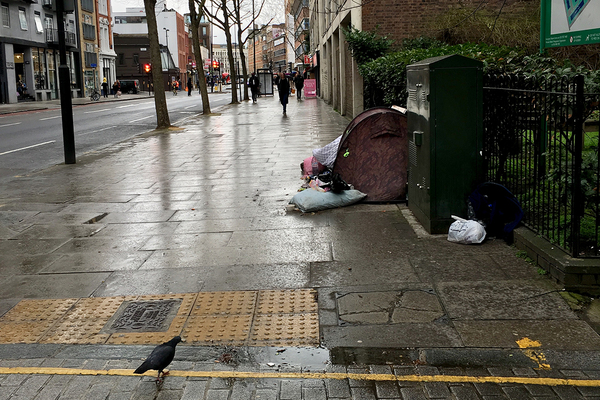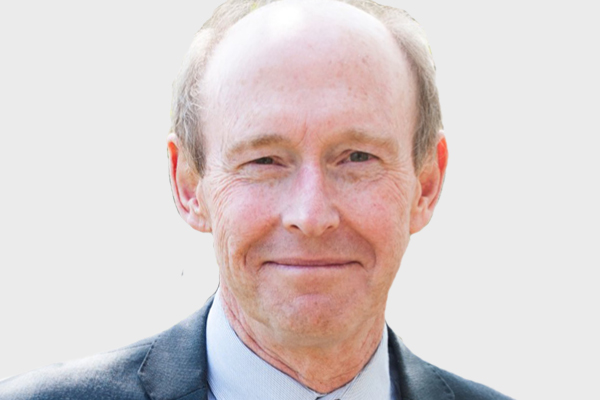You are viewing 1 of your 1 free articles
If ministers provide the tools to tackle homelessness, the sector must also play its part
With the new government taking steps to tackle homelessness, Rebecca Rance argues that there is work to be done by the sector, too
The number of people sleeping rough more than doubled between 2010 and 2018, according to government estimates, which are considered prudent. The numbers rose from 1,768 to 4,677.
Rough sleepers are visible evidence of the failings in the housing and support system of a country that is one of the top 30 richest countries in the world, based on GDP per capita.
The government’s Rough Sleeping Strategy (RSS) was published in August 2018 and it has now committed to ending rough sleeping by the end of this parliament.
Neither bricks and mortar, nor modern methods of construction, are enough to end our shameful housing crisis. As well as delivering more affordable housing, we must end poverty and provide effective supportive housing, which requires joining housing and commissioning support services with long-term funding.
The Tackling the UK Housing Crisis: is supply the answer? report, published by the UK Collaborative Centre for Housing Evidence, explained that increasing supply alone is not the solution.
The report outlines that the distribution of housing has become more unequal. Reversing this requires distributional policies and is not amenable to general market supply. Ending poverty, increasing income levels of the young, and increasing the supply of affordable housing are key.
The Homelessness Prevention in the UK report looks at approaches to homelessness prevention. It identifies the effectiveness of efforts to prevent the recurrence of homelessness and especially of rough sleeping. Currently, England has the weakest performance on this, because there has been a 78% real-terms cut in supporting people funding streams that finance housing-related support since 2010.
The government’s publication in October 2017 of the responses to the ‘funding for supporting housing’ consultation advised the response emphatically called for long-term funding to enable supported housing to be provided.
The RSS estimates the cost of rough sleeping to be £21,200 per person per year and cost to public services of an average adult is approximately £4,600.
Given the above, the case is clearly made, linking housing and the commissioning of support with long-term funding is essential.
Some new monies have been announced. However, to achieve the government’s pledge by 2024, more is needed and it is essential for funding to be a permanent long-term commitment. It must allow housing associations and local authorities to provide, build and fund appropriate supported housing.
Lifting the cap on Local Housing Allowance (LHA) is welcomed, but it is not enough to stop people falling in to poverty, resulting in homelessness and rough seeping.
Increasing income levels is essential for the government’s target to be met.
Government is responsible to put the required tools in place to end rough sleeping, but housing providers have responsibility to step up, too.
As challenge and risks for local authorities and registered providers grow, managing risks to business plans is seeing the increasing emergence of allocations policies which are limiting who can be housed.
Inhibiting access to the most vulnerable in our society – when seeking to ensure viable, sustainable tenancies – cannot be right. These decisions are made seemingly to respond to the requirements to run a sound business. But this must be questioned and business plans managed in a way that provides core services to meet our purpose: to provide affordable housing for all.
“Government is responsible to put the required tools in place to end rough sleeping, but housing providers have responsibility to step up, too”
We are responsible to excel at governance, business and finding the correct solution for the provision of support with our homes to meet peoples’ requirements. This cannot be by excluding those most in need. Questions should be asked. Are we as providers doing enough to use our resources and assets to provide affordable housing for all?
Are we delivering our responsibilities? Are we looking carefully and challengingly at our costs to enable us to make our business plans work?
Current analysis of the Regulator for Social Housing value for money figures advise median headline cost per unit of £3,695 pa and gives us a heads up to look at our costs and ask: why are our costs are at the level they are? Are we directing resources where they are most needed? And could costs per property for a non-specialist provider be reduced?
With growing costs related to building safety and consumer regulation, this statement will draw much scepticism from many chief executives.
Therefore, to take this step, providers must have confidence in long-term supported housing funding – aligned to joined-up commissioning of housing and support services.
We as providers and professionals must be bold. We need to demand what is needed and provide the evidence for the government to provide the correct tools.
And then, once secured, play our part. This means taking the responsibility to self-challenge, improve our costs and be prepared to provide affordable housing for all and end rough sleeping by 2024.
Rebecca Rance, chief executive, Newark and Sherwood Homes











